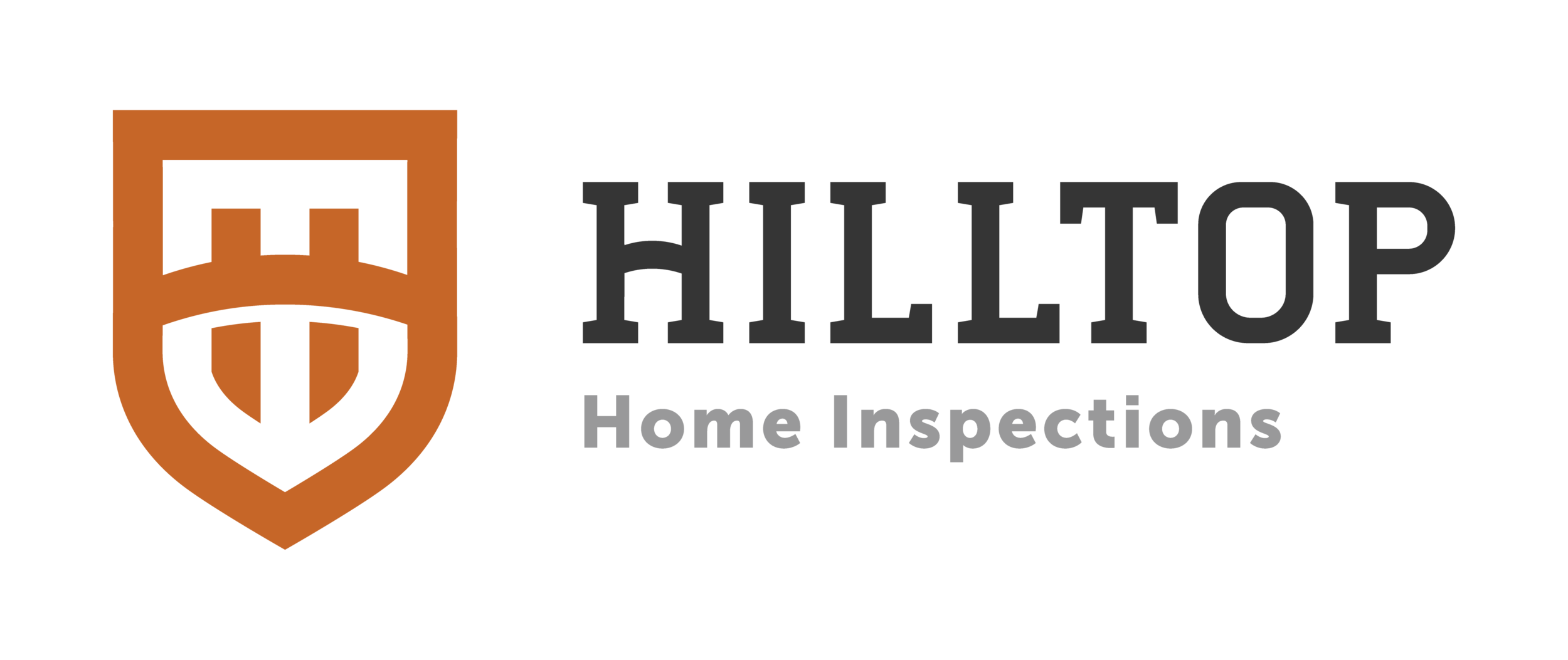Why should I get a home inspection?
Buying a home is typically the biggest investment you will ever make, so it's important to get a home inspection because the inspector should be able to discover and document defects that may or may not be obvious to you as a prospective buyer. Such defects can range from simple replacements or repairs, to severe damage or safety and health concerns. Additionally, some mortgage companies require a home inspection on a property before approving the home loan.
What is a home inspection?
A home inspection is a visual examination of the home's major structure, systems and components that are visible and safely accessible. The inspector should substantially adhere to a standards of practice that outlines what should be covered during a general home inspection, as well as what is excluded. Hilltop will exceed the standards and inspect other items, or perform a more detailed inspection. A copy of the standards can be accessed in the resources section of this website. A sample report can be seen here: (Link)
What does Hilltop exclude from Home Inspections?
Some of the common items not included in a general home inspection are, Pools or Outdoor Hot tubs, Septic Systems, Wells (although water test can be added), sheds and barns (additional fee). If you have any further questions on what’s included, just call! (978)500-1211
How long does an inspection take?
Length of inspection is difficult to determine as it is based on several factors, size, age and condition to name a few. An average home should take about 2.5 to 3 hours. When you schedule with us we can give a better estimate based on the details of the specific property. The report will be emailed to you within 24 hours (often times same day) but without results from 3rd party lab testing (i.e. Radon air or water test results). Those will be emailed as soon as they are available from the lab.
How much does it cost?
Much like time of inspection, cost is also affected by several factors such as size, age or in-law apartments. Our prices start at $450, which would be a small condo. A young average sized home about 2000 sq. feet. would be approximately $550. Additional lab testing (Radon Air or Water) can be done for an added fee. We would be happy to give you a quote over the phone. Just give us a call, (978)500-1211.
What’s the best way to schedule?
We know timing is everything when it comes to closing of a house. We are here to help. Calling or texting is the best way to schedule, (978)500-1211
At what point in the real estate transaction should I schedule a home inspection?
A home inspection is usually scheduled after an offer has been made and accepted, but before the closing date. That way, the inspector can rule out any major defects that could be dangerous or costly. In rare cases—due to timing or contractual issues—the inspection can be scheduled after the closing date. If this is the case, the home buyer should schedule the inspection for the earliest possible date after closing.
You should attend the inspection, and you should reconsider hiring an inspector who doesn't allow this. You can learn a lot by following an inspector through the home. You will certainly gain a better understanding of the home's condition, which will give you insight into its potential sale points and defects. Additionally, you will likely learn information about the home's maintenance, systems and components that may provide useful for the transaction.
Should I be present for the inspection?
Can the home inspector also repair any found defects?
What if your home inspector is also a licensed contractor? Sounds great, right? Not always. Although it may seem convenient to have an inspector who is also a contractor, it poses a conflict of interest. If an inspector financially benefits from finding any defects, this can impact the accuracy of the report (whether intentional or not). Make sure the inspector you hire abides by a Code of Ethics and Standards of Practice.
What happens if the inspection reveals problems?
If your home inspection reveals any problems, it is important to understand the severity of the defect. For example, a missing shingle or dirty air filter can be easily fixed at a low cost. However, if the defect is more extreme, such as a major foundation crack, wood-destroying organism infestation, or evidence of mold, you should find out how these problems can be addressed, and whether you can negotiate the cost remediation or repair with the seller.
